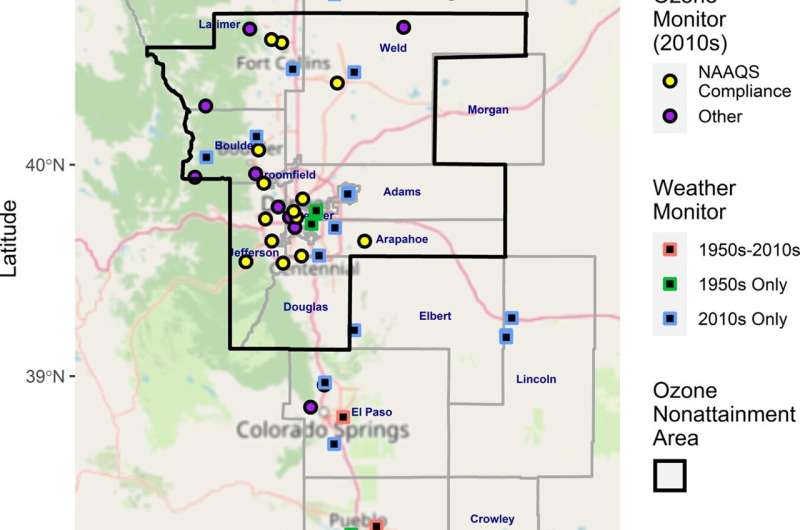High temperatures in Colorado due to climate change pose major health risk

Research findings published today by scientists at National Jewish Health and the Union of Concerned Scientists (UCS) in the Journal of Exposure Science and Environmental Epidemiology, show that climate change has increased ground-level ozone, a respiratory irritant that affects residents in Colorado.
The higher temperatures brought on by climate change from the 1950's to 2019 have accelerated the formation of ground-level ozone in the Denver Metro area, delaying the region's ability to meet national ozone standards and imposing additional public health burdens on residents, especially those living in Latinx neighborhoods and neighborhoods with high rates of asthma and diabetes.
Ground-level ozone is a public health issue that can exacerbate chronic respiratory diseases and interfere with lung function. The data in this new research could help communities prepare for future impacts of climate change and access public health services to cope with the harm that has already occurred from ozone pollution.
"Climate change has sped up ozone production and will continue to make the problem worse until we reduce heat-trapping emissions," said James L. Crooks, Ph.D., a researcher at National Jewish Health. "Climate change is already upon us and we can already detect its influence on the Front Range's ozone problem."
More information: James L. Crooks et al, The ozone climate penalty, NAAQS attainment, and health equity along the Colorado Front Range, Journal of Exposure Science & Environmental Epidemiology (2021). DOI: 10.1038/s41370-021-00375-9
Provided by National Jewish Health

















